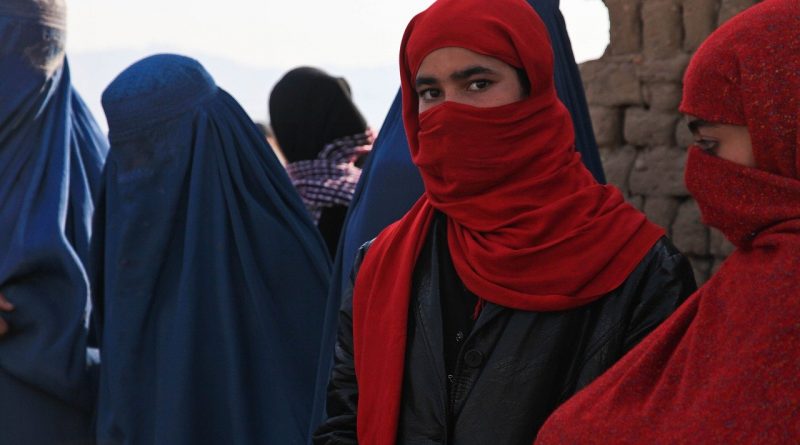“Burqa Ban” in the Age of COVID-19
Shweta Parthasarathy
Staff Writer
Switzerland joined several other European countries in banning burqas, niqabs, and other face coverings in public. This so-called “burqa ban” and those that came before it are highly controversial and inspired debate over religious freedoms and secularism, all of course, complicated by the COVID-19 pandemic.
One of the biggest issues many people have with the bans is that it infringes on the religious freedoms of the Islamic community. According to the BBC, many supporters, including The Netherlands’ Prime Minister Mark Rutte, claim the ban is “religious-neutral,” because they reportedly ban not only burqas and some other traditional Muslim face-coverings, but also balaclavas, helmets, and anything else that impedes identification. However, The Islamic Central Council of Switzerland, a group dedicated to serving the Muslim community in Switzerland, said the ban was “Islamophobically motivated.” The group explained, reports NPR, that the decision to implement the ban “is tearing open old wounds, expanding the principle of legal inequality and sending a clear signal of exclusion to the Muslim minority.” Human Rights Watch labeled the ban “discriminatory” and called it “the latest in a harmful trend.”
More interesting than the consequences, however, is the motivation behind these bans. Advocates of the law claim that the ban is meant to protect national security interests and the culture of these European countries. In fact, most of the laws do not mention burqas, niqabs, or Islam in any way. According to the BBC, the proposal in Switzerland did not mention Islam by name and was apparently aimed at stopping protesters and rioters from wearing masks.
Yet some prominent authorities have explained that the ban helps Muslim women assimilate into their home countries, while removing reminders of Islamic extremism. Walter Wobmann, the chairman of the Swiss referendum committee, explained that in Switzerland, Muslim face coverings are “a symbol for this extreme, political Islam which has become increasingly prominent in Europe and which has no place in Switzerland.” He continued, “In Switzerland our tradition is that you show your face. That is a sign of our basic freedoms.”
Swiss People’s Party President Marco Chiesa further explained “The burqa creates a barrier between the person wearing it and the environment and thus prevents integration into society.”
Wobmann and Chiesa are not alone in this sentiment, according to the BBC. Austrian government officials have also claimed that burqas stand in the way of the “open communication” vital to an “open society.”
Former French Prime Minister Manuel Valls called burkinis, a full-body swimsuit often used by Muslim women, “the affirmation of political Islam in the public space,” and banned them in 2016.
Nicolas Sarkozy, the former president of France, said that burqas and niqabs oppress women and were therefore “not welcome” in France.
There is, overall, an understanding that while none of these bans overtly target Muslims, the implicit motivation is clearly to prevent Muslim women from wearing burqas. And, what makes it worse, as with so many other issues in today’s world, the COVID-19 pandemic highlights another problem with the justification of the ban: what about a protective face mask?
To maintain what is arguably just a facade, lawmakers in many of these European countries made the ban purposefully vague, never mentioning which face coverings were allowed or prohibited. But the pandemic created a yet unanswered paradox – how can face coverings be mandated in one context, while also being prohibited in another?
Moana Genevey, a gender policy officer at the European Network of Equality Bodies (or Equinet), noted to EuroNews that the difference in legislation “when you cover your face for religious reasons and when you cover your face for health reasons” is seriously lacking.
According to the New York Times, , British schoolteacher Alia Jafar noted that wearing a protective mask and a baseball cap have the same result as wearing a niqab – most of the face is covered, save the eyes. “It’s a big contradiction,” she said of the paradox created by the confluence of the ban and the pandemic.
The result, therefore, is an even larger controversy surrounding the ban. European governments created a double standard where an individual can be fined for wearing a face covering, but also for not. And this contradiction is inherently intertwined with the devious intentions behind these laws. No matter how hard politicians attempt to hide the motivations behind their laws, the consequences of those laws always tell the true story. In this case, it tells a story filled with discrimination, bias, stereotypes, and double standards.




